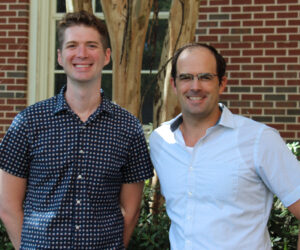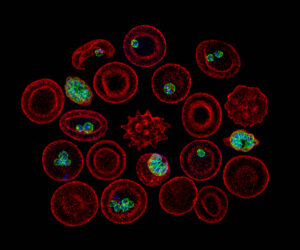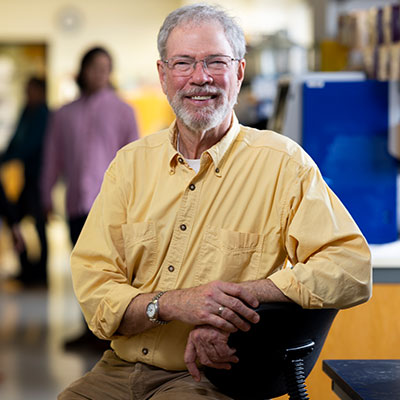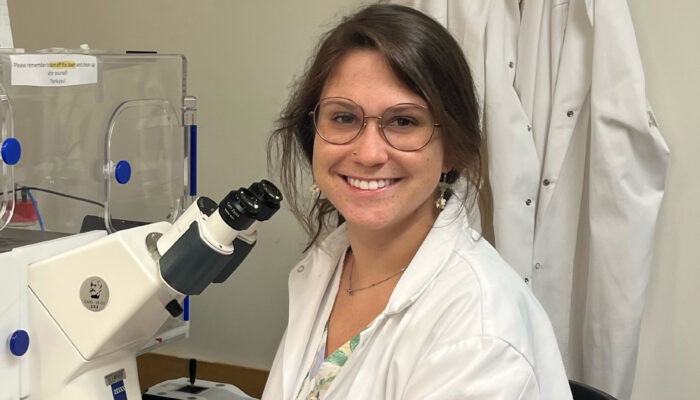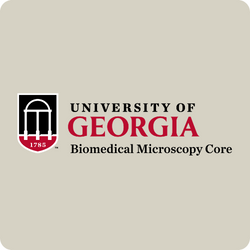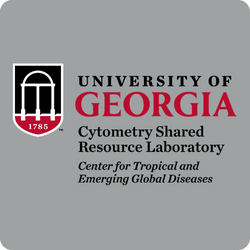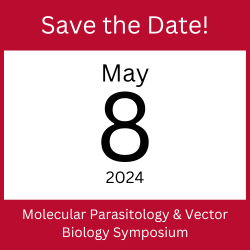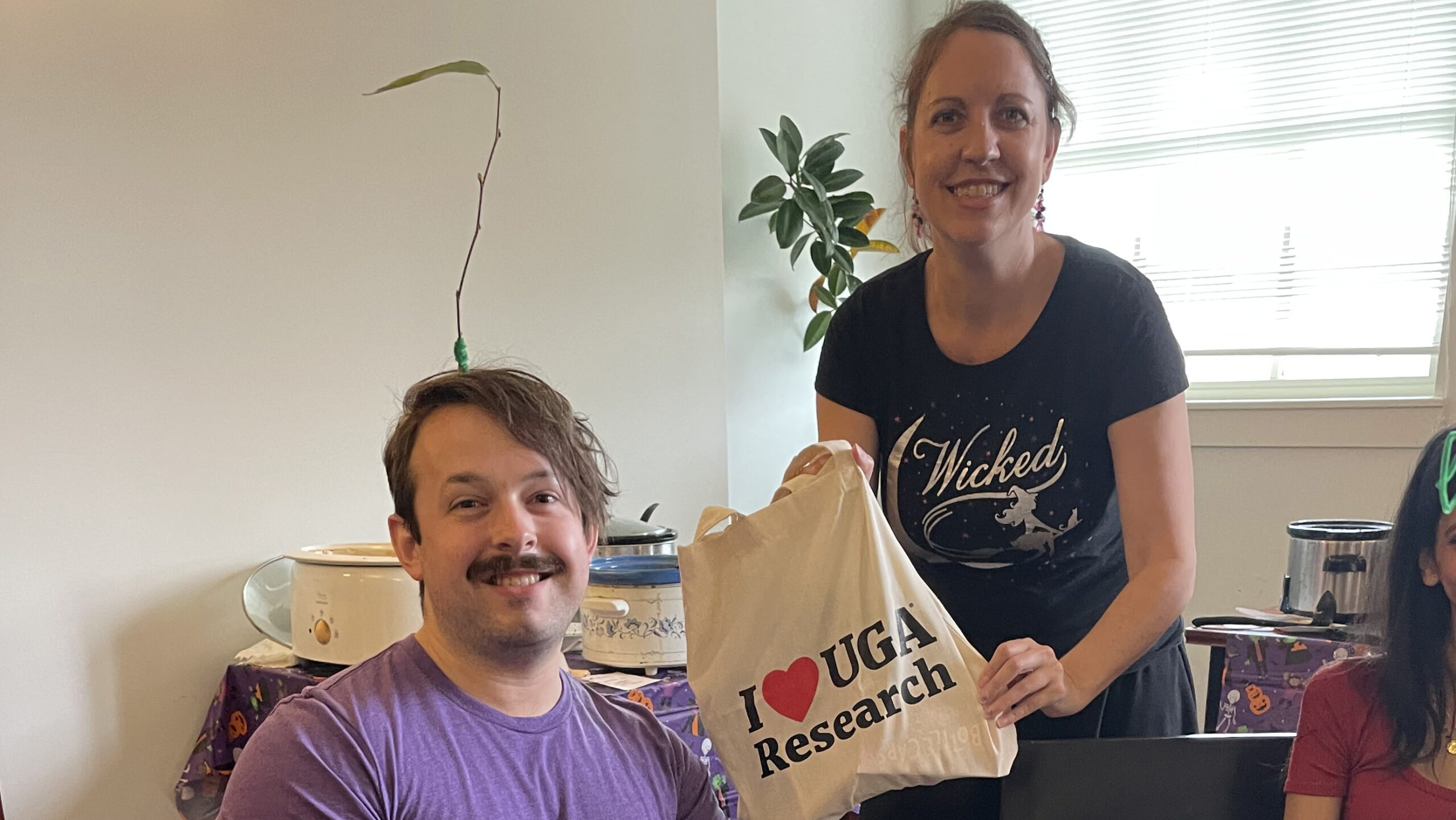Newsletter December 2023
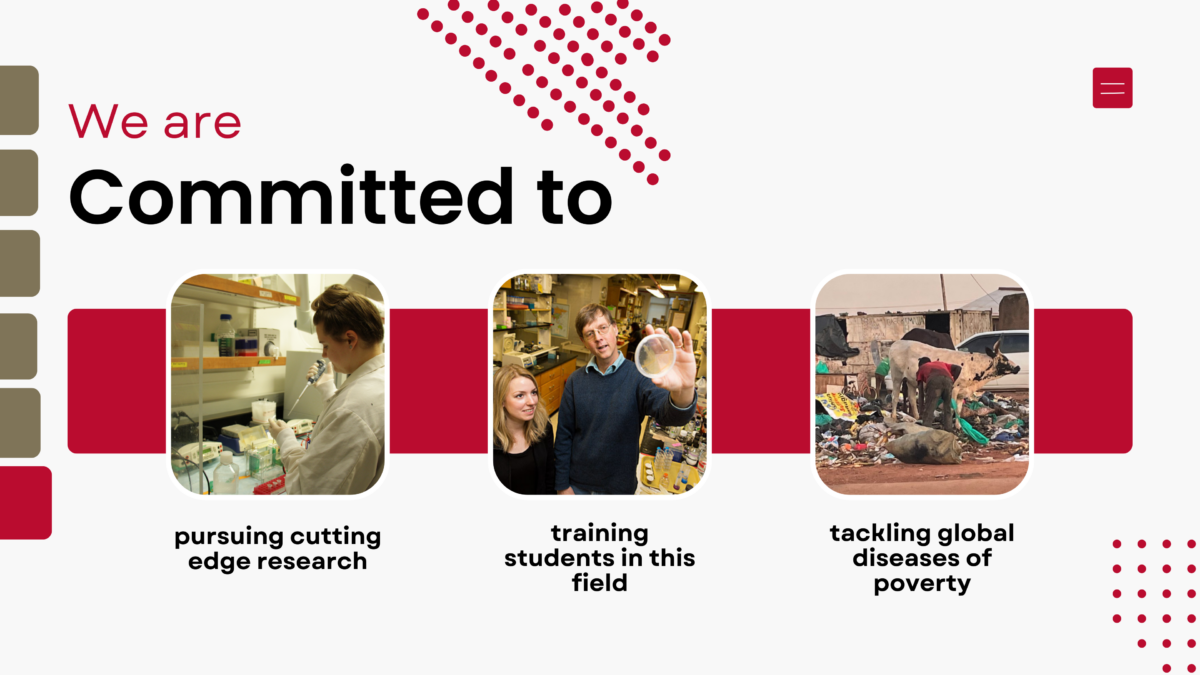
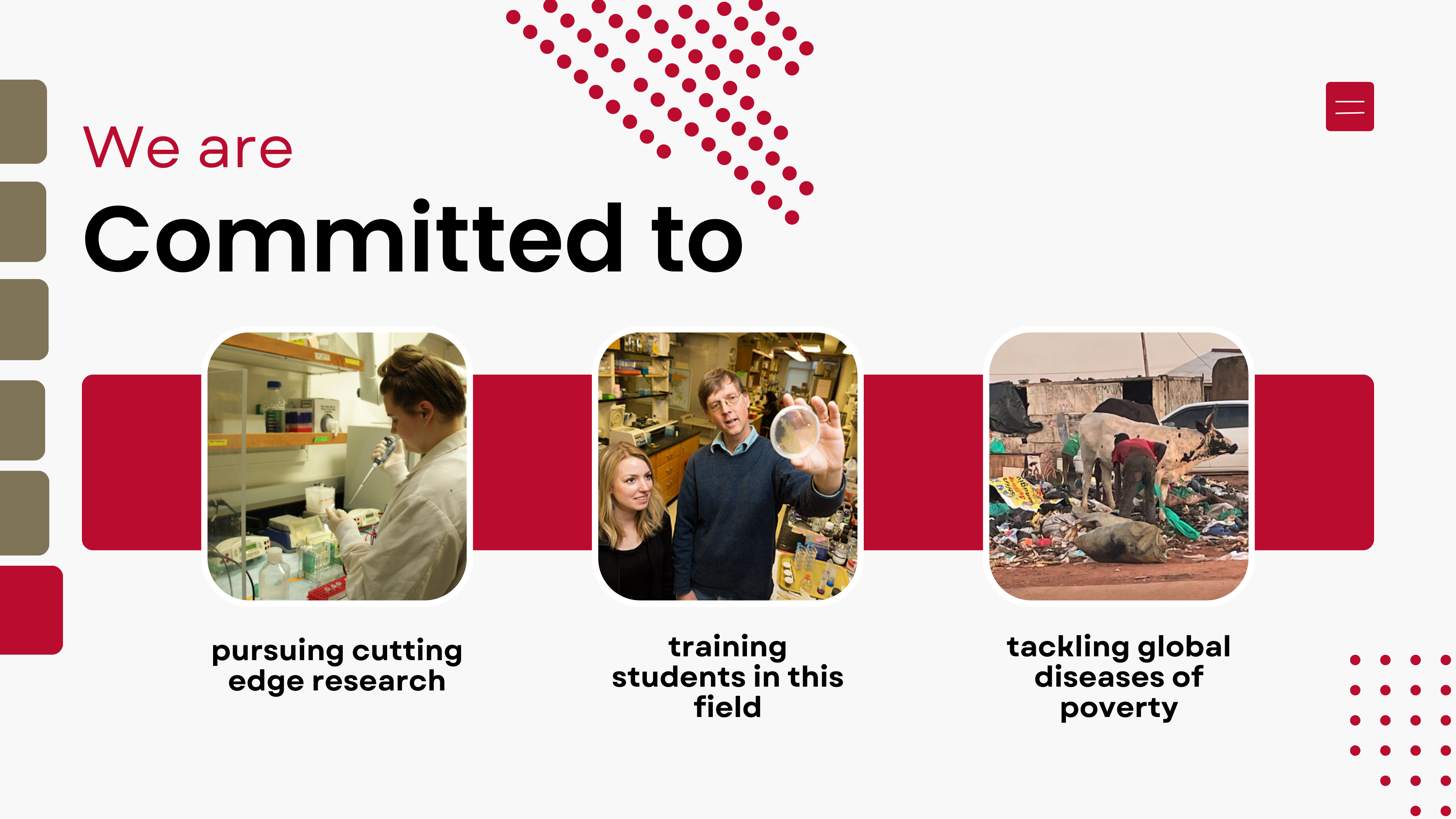
Financial contributions from alumni and friends are vital to accomplishing CTEGD’s mission to pursue cutting-edge research in emerging global diseases,train students in this field, and effectively tackle global diseases of poverty. As you make your end-of-year donations, we hope you will consider including a gift to the Center for Tropical and Emerging Global Diseases – either to our general fund or to the Daniel G. Colley Training in Parasitology Fund. You can learn more about these funds and how your gift will be used to support our mission.
Christopher West, head of the Department of Biochemistry and Molecular Biology, a researcher in the Complex Carbohydrate Research Center and a member of CTEGD, belongs to a small group of internationally recognized parasite glycobiologists. His rigorous, transformative research explores cellular processes involving various structures, enzymes and roles of glycans, or sugar chains. His studies have identified fundamental cell-to-cell mechanisms of environmental sensing and signaling in glycobiology. Some of his seminal discoveries involve the biosynthesis and roles of novel glycan molecules in the model organism, Dictyostelium discoideum. One of his crucial contributions to glycobiology has been to describe at molecular resolution that organism’s biochemical response pathway to altered oxygen levels, allowing it to respond to its environment’s available oxygen. Since arriving at UGA, he has translated these findings to an opportunistic human pathogen, Toxoplasma gondii, which can grow and infect cells in low-oxygen environments. His research with collaborators at UGA and internationally has opened a new field of oxygen-sensing in protists, exploring how this environmental factor can control the behavior and virulence of pathogenic parasites.
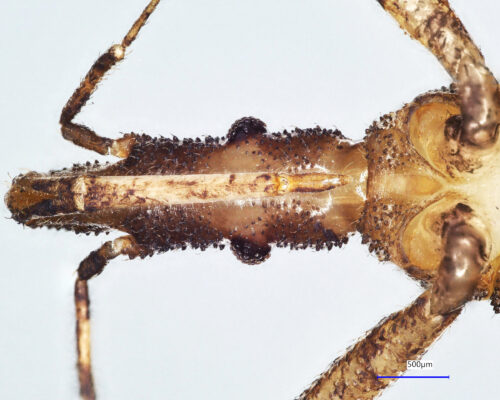
At least 7 million people—mostly in Central and South America, but also in the southern United States— are believed to be living with Chagas disease. The parasite Trypansoma cruzi that causes the life-threatening illness is transmitted to humans and animals when an insect commonly called a kissing bug poops on its victim after biting them.
Ruby Harrison, a postdoctoral fellow in Drew Etheridge’s lab in the Center for Tropical and Emerging Global Diseases, wants to better understand the interactions between the parasite and its insect host.
Using the Department of Entomology’s Keyence VHX-7000 Digital Microscope, she imaged the underside of the kissing bug species Panstrongylus megistus. This image clearly shows the three-segmented rostrum, or beak, that kissing bugs use to suck blood from their unfortunate sleeping victims.
The specimen was provided by their collaborator, entomology professor Kevin Vogel, whose lab rears four different kissing bug species.
Trainee Spotlight: Victoria Mendiola
Undergraduate Research Experience Sparked Interest in Parasitology for Graduate Student >>Read More>>
In the news

Rick Tarleton, along with Drew Etheridge‘s lab, was featured in a KFF Health News story about Chagas disease that has been picked up by several media outlets.
Moving Innovation Beyond the Walls (Georgia Trend)
Explore More
Recently Funded Projects
Chet Joyner received a grant from Good Ventures Foundation to fund predoctoral training in P. vivax research. He also received a grant from the Bill & Melinda Gates Foundation to develop transgenic Pv parasites and an NHP relapse model.
Silvia Moreno received grants from the National Institutes of Health (NIH) to study divergent calcium channels of the apicomplexan parasite Toxoplasma gondii and the role of polyphosphate in Toxoplasma gondii.
Rick Tarleton received a grant from NIH to study the activation of benzoxaborole prodrug AN15368, a clinical candidate for Chagas disease.Ynes Ortega received a grant from USDA NIFA to support the International Cyclospora Conference.
Vasant Muralidharan received a grant from Flagship Pioneering Labs TPC Inc for Plasmodium exploration. He also received an NIH grant to study exocytosis of Plasmodium egress and invasion organelles.
Roberto Docampo received a grant from NIH to study polyphosphate and cardiac fibrosis by Trypanosoma cruzi.
Andrew Moorhead received a grant from Boehringer Ingelheim Animal Health USA.
M. Belen Cassera, along with her colleagues at the University of Illinois – Chicago, received a grant from NIH for optimization of antimalarials targeting multiple life stages of the parasite.
Steven Maher received a grant from Medicines for Malaria Venture to develop Acetyl-CoA-Synthetase inhibitors as a SERCAP for relapsing malaria.
Dennis Kyle received a grant from NIH to elucidate mechanisms for artemisinin-induced dormancy in Plasmodium falciparum.

